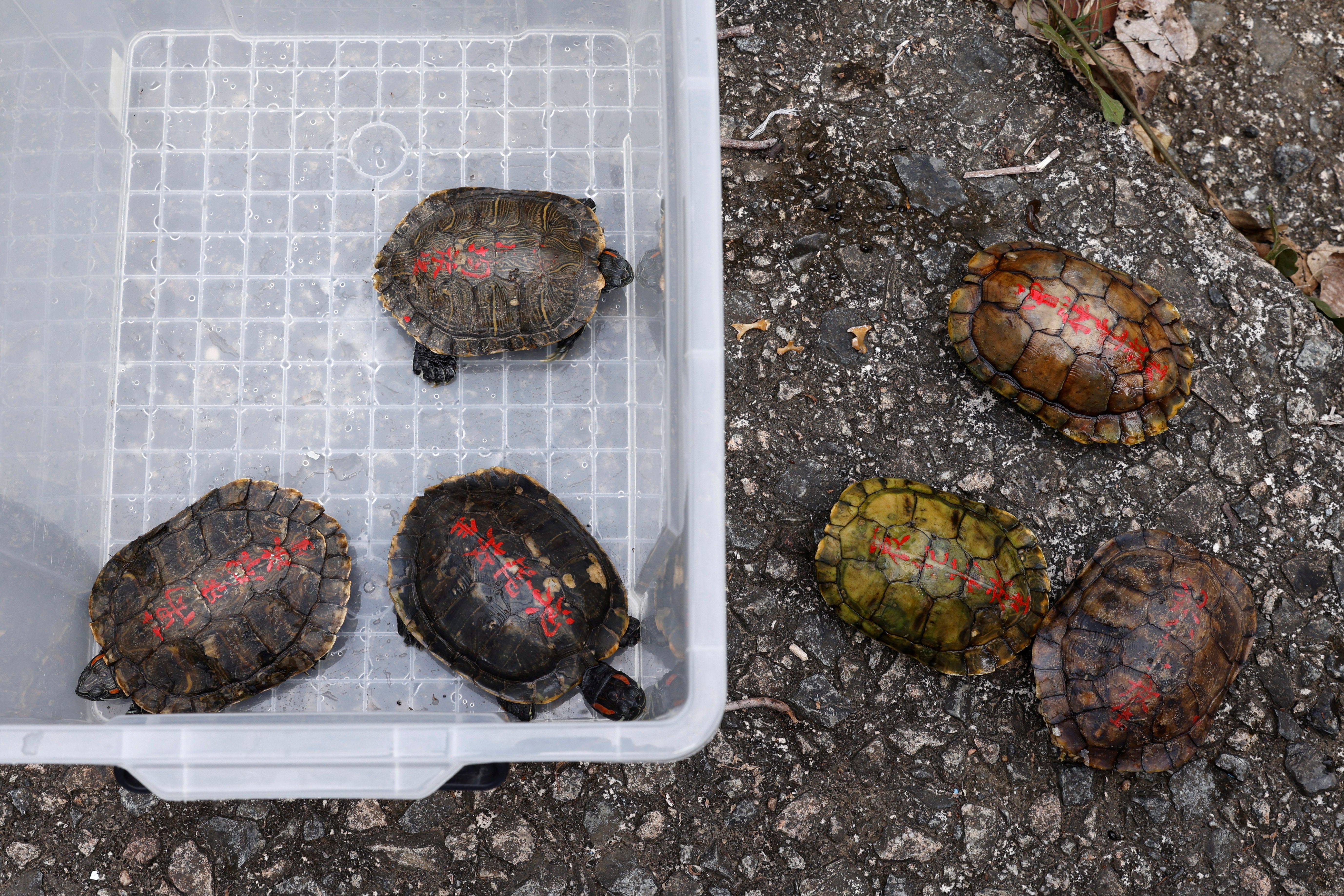Hong Kong volunteers aid injured turtles following ‘mercy release’
‘It’s not suitable for these turtles to live in places like these catchwater drains or ponds because they are not local Hong Kong species’

At a drainage pool near a popular hiking site in Hong Kong’s rural Tai Po district, a group of volunteers armed with snorkels, nets and gloves wade through the muddy water to find dozens of turtles left there by residents.
The red-eared slider turtles were released into the wild through a practice known as “mercy release” - a concept rooted in a Buddhist belief that freeing animals brings good fortune.
But many animals are being intentionally captured and sold just to be set free, animal experts said, while the turtles often get hurt or even die after being left in waterways.
There are also concerns that the release of the red-eared slider, which is not native to Hong Kong, could disrupt the local ecosystem and pose a risk to public health.
Thousands of animals are affected every year and scores are likely to be released in May leading up to the Buddha’s birthday on 19 May, conservation experts said.
“It’s not suitable for these turtles to live in places like these catchwater drains or ponds because they are not local Hong Kong species,” said Sean Lai, who runs a concern group for abandoned turtles.
“If they used to be cared for by humans, they won’t be able to hunt in the wild, they may not be able to catch the fish, shrimp, or food they need, then they’ll starve to death. Or due to the change of weather, they might freeze to death or die from the heat.”
Mr Lai said at least 28 out of the over 80 turtles his group found in the same drainage outlet this year were dead. Some had “mercy release” written on their shells in Chinese characters.
He said his volunteers were taking care of more than 60 injured turtles - from treating skin infections to broken shells - and that the animals would be put up for adoption when they returned to health.
“Hong Kong is facing a serious situation of people mercy releasing turtles. A lot of religious devotees would buy a large number of turtles and release them into rivers, streams, beaches, and country parks,” Mr Lai said.
Other animals commonly involved in mercy releases in Hong Kong include frogs, insects, baby birds and fish, said Paul Crow, a senior conservation officer at Kadoorie Farm and Botanic Garden, which focuses on species conservation and ecosystem restoration in Hong Kong and southern China.
Releasing a foreign animal could not only damage the local ecosystem but could pose a risk to public health down the line, Mr Crow said.
“Potential disease, bacteria, virus, parasites from other countries, from the collection sources are all getting dumped without screening, or without ... consideration of the public health risk as well.”
Hong Kong’s Agriculture, Fisheries and Conservation Department said that while mercy release is not illegal, it could be detrimental to animal welfare and spread diseases. If the practice causes unnecessary suffering to animals, it may also breach the city’s legislation on prevention of cruelty to animals, it said.
The department said it would continue to implement education and publicity to promote animal welfare.
The Hong Kong Buddhist Association said it did not urge people to release animals and that some “inappropriate practices” had caused physical harm to animals, threatened the environmental balance and led to adverse criticism.
“We hope more people can understand the traditional way of mercy release is not the only way to help animals,” it said, recommending alternatives such as “adopting a vegetarian lifestyle and protecting and enhancing wildlife habitats.”
Reuters
Join our commenting forum
Join thought-provoking conversations, follow other Independent readers and see their replies
Comments
Bookmark popover
Removed from bookmarks